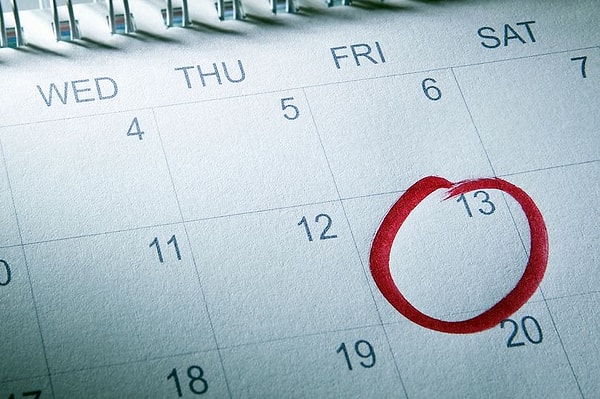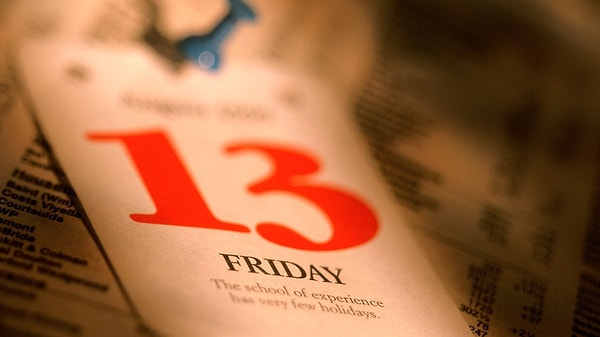Why Is Friday The 13th Considered Unlucky?
When it comes to bad luck in Western culture, the first day that typically springs to mind is Friday the 13th. This day, considered as ill-omened as encountering a black cat or breaking a mirror, has maintained its mystique for centuries. Yet, most people are not entirely sure about the origins of this belief. Let's delve into its roots together 👇🏻
The superstition surrounding the number 13 has roots that trace back quite far into history.

In Norse mythology, Loki, a trickster yet dangerous god, crashes a divine feast uninvited as the 13th guest. He cunningly manipulates Hodr, another deity, into killing his brother Balder with a mistletoe arrow. This incident not only shatters the peace among the gods but also extinguishes happiness in the world. From that day forward, the number 13 has been regarded as a symbol of chaos, death, and misfortune.
A similar tale emerges in Christianity. The 13th guest at Jesus' Last Supper was none other than Judas Iscariot, who would later become the embodiment of betrayal. Jesus was crucified the following day, which was a Friday. Consequently, both '13' and 'Friday' merged to form a religiously ominous symbol.
The negative connotation associated with Friday also finds its roots in religious narratives.

According to folklore, the day Adam and Eve partook of the forbidden apple was a Friday. Similarly, it is believed that Noah's Ark set sail and Cain committed fratricide against his brother Abel on a Friday. Throughout the Middle Ages in Europe, Friday was notorious as the 'day of hanging,' when gallows were erected. Consequently, activities such as setting out on a journey, starting a business, or getting married were typically avoided on Fridays.
On the other hand, some cultures consider Friday sacred. In Islam, it's regarded as the most blessed and special day of the week, while in Judaism, it's seen as a time of preparation for the Sabbath. Thus, the perception of it being 'unlucky' stems entirely from cultural viewpoints.
The association of Friday the 13th with fear and superstition is actually a relatively recent development.

By the end of the 19th century, both Friday and the number 13 had become symbols of bad luck in England. The belief was further cemented by Thomas W. Lawson's novel 'Friday, the Thirteenth,' published in 1907. The novel spun a tale of a man who exploited the superstition of this ominous day to crash the stock market.
Fast forward to the 1980s, the 'Friday the 13th' film series catapulted this date to the epicenter of horror culture. The legend, immortalized in popular culture through the masked killer character Jason Voorhees, permeated everywhere from cinema to everyday life. Some hotels lack a 13th floor, while some airplanes don't have a 13th row.
However, it's important to remember that this belief is not universal. In Greek and Spanish cultures, the unluckiness of 13 is associated with Tuesday, while in Italy, it's linked to the number 17. Hence, the fear of Friday the 13th is essentially a product of the Western world.
Keşfet ile ziyaret ettiğin tüm kategorileri tek akışta gör!

Send Comment